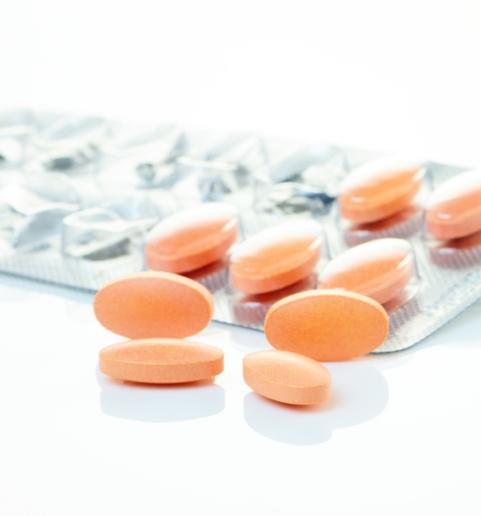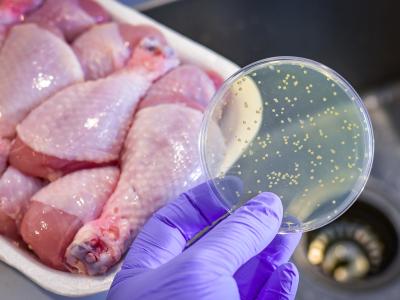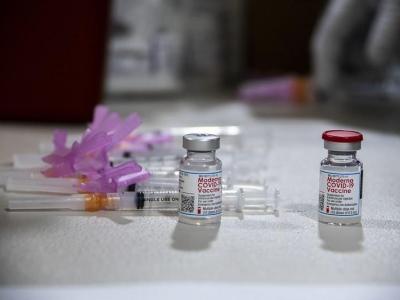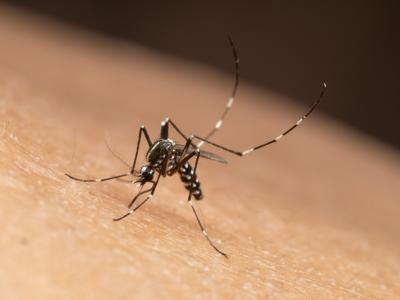Statin drugs are widely used to lower lipids and battle cholesterol, but other actions of the drugs may blunt the immune response to flu vaccination, making it less effective in seniors, the main users of the drugs and among the most vulnerable to flu complications.
Two research teams published their findings in studies that appeared in the Oct 28 edition of the Journal of Infectious Diseases. One was a post hoc review of immune response data from an earlier trial of an adjuvanted and unadjuvanted trivalent influenza vaccine (TIV), and the other looked at the impact of statins on the effectiveness of flu vaccines in preventing serious respiratory illnesses among people enrolled in a large managed care organization.
Globally, an estimated 1 billion people are on statin drugs. Aging immune systems may not respond as effectively to flu vaccine, and because older people bear such a large burden of deaths from seasonal flu, scientists have been working on better ways to protect seniors, such as developing a high-dose flu vaccine, approved specifically for the age-group in the United States in late 2009.
Besides their lipid-lowering effects, statins also suppress T-cell activation and have immunomodulatory and anti-inflammatory effects.
Blunted immune response
In the first study, researchers from the Cincinnati Children's Global Health Center (CCGHC) and Novartis Vaccines looked at immune response data from a clinical trial of TIV conducted during the 2009-10 and 2010-11 flu seasons. The group's analysis is based on 7,000 adults over age 65 from the United States, as well as Colombia, Panama, and the Philippines.
When the investigators reviewed antibody levels 3 weeks after flu vaccination, they found a significant reduction in immune response to flu vaccination in statin users compared with those who weren't on the drugs. The team also found that the effect was most dramatic in those on synthetic statins compared with naturally derived versions.
Natural statins are derived from fungal compounds and include the initial drugs: lovastatin, pravastatin, and simvastatin. Introduced more recently, synthetic statins include atorvastatin, cerivastatin, and fluvastatin.
Steven Black, MD, the study's lead author and faculty member at CCGHC, said in a press release from the Infectious Diseases Society of America (IDSA), "Apparently, statins interfere with the response to influenza vaccine and lower the immune response, and this would seem to also result in a lower effectiveness of influenza vaccines."
If the connection between stains and impaired response to flu vaccination is confirmed, the findings might warrant preferential use of the high-dose vaccine in seniors or greater use of vaccines containing an adjuvant to boost immune response in older people. The United States has not approved an adjuvanted seasonal flu vaccine, though they have been used in other countries for several years.
In September, though, a Food and Drug Administration (FDA) panel recommended approval for a Novartis adjuvanted flu vaccine for people age 65 or older. If given final approval, it would be the nation's first boosted flu vaccine.
Statins, vaccination, and respiratory illness
In the second study, researchers from Emory University analyzed data over seven flu seasons from 2002 to 2011 involving nearly 140,000 people enrolled in a large managed care group in Georgia. The team examined flu vaccination status, statin prescriptions, and medically attended acute respiratory illnesses.
Saad Omer, MBBS, PhD, MPH, the study's lead author, said in the IDSA press release that his team found a potential signal that flu vaccine effectiveness in older people may be compromised if they are taking statins compared with those who aren't.
After adjusting for different factors, the team observed that vaccine effectiveness against serious respiratory infections was lower in those taking statins, especially when flu was circulating. The authors noted that the findings may have an influence on guidance for statin use at the time of vaccination, but more studies—including ones involving lab-confirmed flu—are needed.
Too soon to change care
In an accompanying editorial, two experts said the connection between statin use and flu vaccine effectiveness is plausible, despite possible limitations from unrecognized biases, and raises key questions. But they add that it's still too soon for physicians to change the way they care for patients.
The experts are Robert Atmar, MD, an infectious disease specialist, and Wendy Keitel, MD, a vaccine specialist, both with Baylor College of Medicine in Houston.
"Instead, the results of these studies should be viewed as hypothesis-generating and should prompt further investigations into whether statins reduce inactivated influenza vaccine immunogenicity and, if so, the mechanisms by which immune responses and associated vaccine effectiveness are adversely affected," they wrote.
See also:
Oct 28 J Infect Dis immune response study abstract
Oct 28 J Infect Dis respiratory illness study abstract
Oct 29 IDSA press release
Oct 28 J Infect Dis editorial
Sep 15 CIDRAP News story "FDA panel recommends adjuvanted flu vaccine for seniors"






















